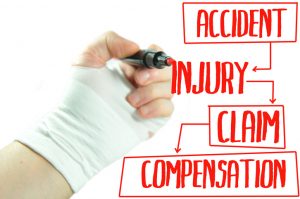 If you are considering filing a personal injury claim, after an accident, you may be a bit confused about the types of damages that are available. In an injury lawsuit, there are compensatory damages and punitive damages. Compensatory damages are those meant to compensate you for your existing and future losses. Punitive damages are meant to punish the wrongdoer and are only available under certain circumstances. To learn about caps and requirements in your state, talk to an experienced personal injury attorney today.
If you are considering filing a personal injury claim, after an accident, you may be a bit confused about the types of damages that are available. In an injury lawsuit, there are compensatory damages and punitive damages. Compensatory damages are those meant to compensate you for your existing and future losses. Punitive damages are meant to punish the wrongdoer and are only available under certain circumstances. To learn about caps and requirements in your state, talk to an experienced personal injury attorney today.
Compensatory Damages
Compensatory damages fall into two categories, economic damages, also called special damages, and noneconomic damages, also referred to as general damages. Compensatory damages are meant to compensate you for existing and future losses, to restore you to your pre-injury condition to the greatest extent possible.
Economic damages are those which have a specific dollar value and include your estimated future losses. Examples include:
- Medical expenses
- Home health care
- Special equipment and medical supplies
- Prescriptions
- Home modifications and transportation to accommodate disability
- Custodial care
- Long-term care
- Lost income
- Diminished earning capacity
- Cost for help with tasks you can no longer perform
- Other out-of-pocket expenses
Non-economic damages cannot be tied to a specific dollar values but are the harms that typically mean the most to injury victims and their loved ones. They can include:
- Physical pain and suffering
- Physical impairment
- Disfigurement
- Mental pain and suffering
- Diminished quality of life
- Loss of enjoyment of life
- Loss of consortium, for your spouse
Punitive Damages
Punitive damages are often misunderstood. Sometimes a jury will award huge punitive damages based of the nature of the case, but those damages are often significantly reduced to comply with caps set by state law. What you need to know is that punitive damages are rarely available and when they are, they are there to punish the wrongdoer and give you a sense of justice, not to compensate you. In fact, in many states a large portion of the punitive damages go to the government not the victim.
To learn more about the damages that may be available in your case, please search our directory for an accident lawyer in your state.















